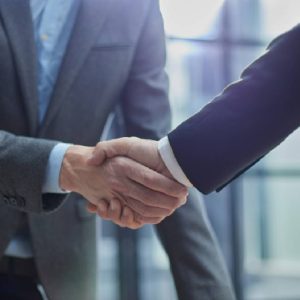In addition to disciplinary sanctions, FINRA is seeking disgorgement of all ill-gotten profits and full restitution to affected investors.
FINRA complaint also charged the firm and Mr Smith with misuse of investor funds, supervisory deficiencies and violation of securities registration rules. Mr Smith was also charged with misrepresenting facts in letters he sent to investors. In addition, the firm, Mr Smith and Timothy McGinn, co-owner of the firm and chairman of its board were charged with providing FINRA staff with falsified documents.
The complaint alleged that from September 2003 through November 2006, the firm and Mr Smith sold approximately $89m in income notes to 515 investors in four fraudulent securities offerings by four limited liability companies (LLCs) managed and controlled by Mr Smith. FINRA also charged that the income notes, which are securities, were neither registered nor eligible for an exemption from registration.
According to the complaint, the firm falsely promised investors that their funds would be earmarked for an array of public and private investments. Instead, Mr Smith misused the majority of the offering proceeds to benefit 26 business entities that he, Mr McGinn and other firm owner controlled, or in which they maintained a financial interest .
The complaint also alleged that most of the related companies were illiquid and had little revenues or were in poor financial condition at the time they received proceeds from the income note offerings. Mr Smith allegedly misused approximately $51m of investor funds, directing approximately $17m to the related companies and approximately $34m more to make loans to them. Approximately $22m of those loans remain unpaid. Mr Smith allegedly received personal loans of approximately $590,000 from the related companies that were funded by investments made in the four LLCs.
Further, the complaint alleged that the firm and Mr Smith failed to disclose several material facts in connection with the four offerings, including that the LLCs would be investing and making loans to the related companies, that the LLCs would be making long-term loans and that the majority of offering funds would be invested in illiquid, non-public companies.
The firm and Mr Smith also allegedly misrepresented to investors that the firm would only receive a 2% underwriting/commission fee. The complaint alleged that, in fact, the firm received recurring annual commissions from the inception of the offerings, totaling approximately $7.5m – approximately 8.4% of the offering proceeds.
According to the complaint, the vast majority of the LLC investments were illiquid and non-performing. In 2008, Mr Smith, acting on behalf of the LLCs, stopped all redemptions and sent two letters to investors misrepresenting that the firm and two of the related companies would waive or forgo further fees and commissions due to the poor financial condition of the income note issuers. But contrary to those representations, the complaint alleges, the firm and the two related companies subsequently took in approximately $6.7m in fees and commissions.
The complaint further alleged that, in response to a FINRA staff request for information, the firm, Mr Smith and Mr McGinn provided falsified documents, submitting backdated promissory notes for personal loans they and others previously received from two of the related entities.






